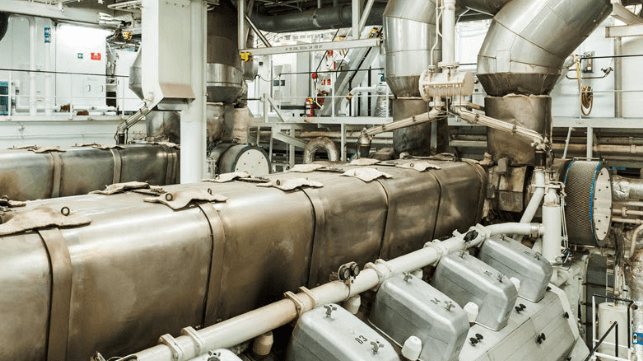DNV: Passenger Vessel Operators Should Look Closely at Blackout Risks

DNV is advising passenger vessel operators to pay close attention to the hazards posed by blackouts, particularly for vessels fitted with complex modern controls and electrical systems.
"The underlying causes of blackouts can often be traced back to the operation of complex integrated systems," advised DNV. "Today, the industry is pushed to design and implement
technical solutions and operations that reduce cost and that are more energy efficient. The complexity of system integration challenges our ability to understand how these systems work. This has become an increasing concern for the whole industry."
In 2019 there were 12 reported power-loss events on cruise ships that resulted in full or partial blackout, according to DNV, up from four events in 2018. In open water, the consequences are usually low, but in a harbor or channel a blackout can result in a serious marine casualty, like a grounding or collision. Even short of a serious incident, a blackout can bring negative publicity to a passenger-vessel operator.
Using a "bow-tie" model to illustrate risks and barriers to escalation, DNV recommended that passenger vessel operators should conduct a review of technical and operational measures to improve the reliability of their existing fleet. This includes improving operating and maintenance procedures, managing software and networks, training the crew, conducting blackout testing, and taking measures to ensure fault tolerant closed-bus operations. This can include installing an additional safety control system that supervises the operation of each generator set, separate from its fuel control system and excitation control system.

that matters most
Get the latest maritime news delivered to your inbox daily.
Looking ahead, many improvements can be built into the next generation of vessels, like incorporating human-centered design in the process of engineering vessel systems. Backup battery power and effective blackout recovery systems can also be installed at the shipyard.
“This is a great initiative that combines design principles, technical commissioning and human factors.?A holistic approach is essential to maintaining design principles throughout system development, integration and final testing – not least operator familiarization and training of new crew members,” said Rami Nurminen, Director Technical Assurance at Royal Caribbean Cruises.
